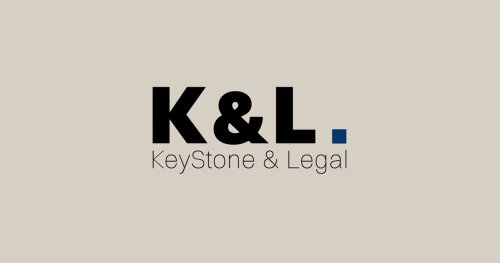Best New Business Formation Lawyers in South Korea
Share your needs with us, get contacted by law firms.
Free. Takes 2 min.
Or refine your search by selecting a city:
List of the best lawyers in South Korea
About New Business Formation Law in South Korea
South Korea is an attractive destination for entrepreneurs due to its robust economy, advanced technology infrastructure, and supportive government policies aimed at fostering innovation and business growth. The process of new business formation in South Korea is regulated by a series of laws and requires adherence to several procedural steps. These laws cover aspects from registering a business entity to ensuring compliance with tax obligations and labor laws. Entrepreneurs can choose from several business structures, including sole proprietorships, partnerships, limited liability companies, and corporations. Each structure has its regulatory requirements and implications for taxes, liability, and business operations.
Why You May Need a Lawyer
Starting a new business in South Korea involves navigating a complex legal environment to ensure compliance with all pertinent laws and regulations. Here are some common situations where legal assistance may be beneficial:
- Choosing the appropriate legal structure for your business and understanding the implications of each type.
- Drafting and reviewing contracts with suppliers, clients, and employees to ensure they are legally sound and protect your interests.
- Navigating visa and immigration requirements if you are a foreign entrepreneur.
- Understanding and complying with tax obligations and filing requirements.
- Ensuring adherence to labor laws and proper handling of employment contracts.
- Addressing intellectual property rights, including trademark and patent registrations.
- Handling disputes or litigation that may arise in the course of business operations.
Local Laws Overview
South Korea has extensive laws governing the establishment and operation of businesses. These laws aim to protect both entrepreneurs and consumers while ensuring fair business practices. Key aspects include:
- Commercial Act: Governs business operations, including formations, dissolutions, and mergers.
- Taxation Laws: Include corporate income tax, value-added tax (VAT), and withholding tax obligations.
- Foreign Investment Promotion Act: Facilitates foreign direct investments and provides incentives and protections for foreign investors.
- Labor Standards Act: Covers employment contracts, working conditions, wages, and benefits.
- Fair Trade Act: Ensures competitive practices and prohibits monopolistic behaviors and unfair trade.
Frequently Asked Questions
1. What are the main types of business structures available in South Korea?
The main types include sole proprietorships, partnerships, limited liability companies, and corporations. Each has different implications for liability, taxes, and administrative requirements.
2. Can a foreigner start a business in South Korea?
Yes, foreigners can start a business in South Korea. They may need to comply with additional regulations concerning visas and registrations with local authorities.
3. Are there any incentives for foreign investors?
Yes, the South Korean government offers various incentives for foreign investors, including tax exemptions and reductions, particularly in free economic zones and sectors targeted for economic development.
4. How long does it take to register a business in South Korea?
The registration process can typically take a few weeks, depending on the completeness of the submitted documentation and the processing times of the relevant authorities.
5. What is the average cost of establishing a company in South Korea?
The cost varies depending on the business structure and location. It generally involves registration fees, legal fees, and other administrative costs.
6. What are the tax obligations for new businesses?
New businesses must comply with corporate taxes, VAT, and any applicable withholding taxes. It's advisable to seek professional tax advice for precise tax planning.
7. Are there specific licenses required for certain types of businesses?
Yes, certain industries, such as food and beverage or financial services, require specific licenses or permits. These must be obtained prior to starting operations.
8. Is it necessary to have a company seal in South Korea?
Yes, a company seal is required for executing important documents, such as contracts. It is considered an official form of authentication for corporate documents.
9. What steps are involved in opening a corporate bank account?
You will typically need a business registration certificate, identification documentation, and proof of address for opening a corporate bank account.
10. How can I protect my intellectual property in South Korea?
Intellectual property can be protected through patents, trademarks, and copyrights, which must be registered with the Korean Intellectual Property Office (KIPO).
Additional Resources
For further information and assistance, consider reaching out to the following resources:
- Korea Trade-Investment Promotion Agency (KOTRA): Offers support and guidance for foreign investors.
- Ministry of Trade, Industry and Energy (MOTIE): Handles policies related to trade and investment.
- Korean Intellectual Property Office (KIPO): Supports applications and registrations for intellectual property.
- Local Chambers of Commerce: Provides networking opportunities and business support services.
Next Steps
If you require legal assistance in new business formation, consider the following steps:
- Contact a qualified business attorney in South Korea who specializes in business formation and incorporation laws.
- Gather all necessary documents and information related to your business idea, including, but not limited to, market research, financial projections, and a business plan.
- Schedule a consultation with your lawyer to discuss the most appropriate legal structure and strategy for your business needs.
- Engage with local or national business development agencies for additional guidance and support.
Lawzana helps you find the best lawyers and law firms in South Korea through a curated and pre-screened list of qualified legal professionals. Our platform offers rankings and detailed profiles of attorneys and law firms, allowing you to compare based on practice areas, including New Business Formation, experience, and client feedback.
Each profile includes a description of the firm's areas of practice, client reviews, team members and partners, year of establishment, spoken languages, office locations, contact information, social media presence, and any published articles or resources. Most firms on our platform speak English and are experienced in both local and international legal matters.
Get a quote from top-rated law firms in South Korea — quickly, securely, and without unnecessary hassle.
Disclaimer:
The information provided on this page is for general informational purposes only and does not constitute legal advice. While we strive to ensure the accuracy and relevance of the content, legal information may change over time, and interpretations of the law can vary. You should always consult with a qualified legal professional for advice specific to your situation.
We disclaim all liability for actions taken or not taken based on the content of this page. If you believe any information is incorrect or outdated, please contact us, and we will review and update it where appropriate.
Browse new business formation law firms by city in South Korea
Refine your search by selecting a city.
















